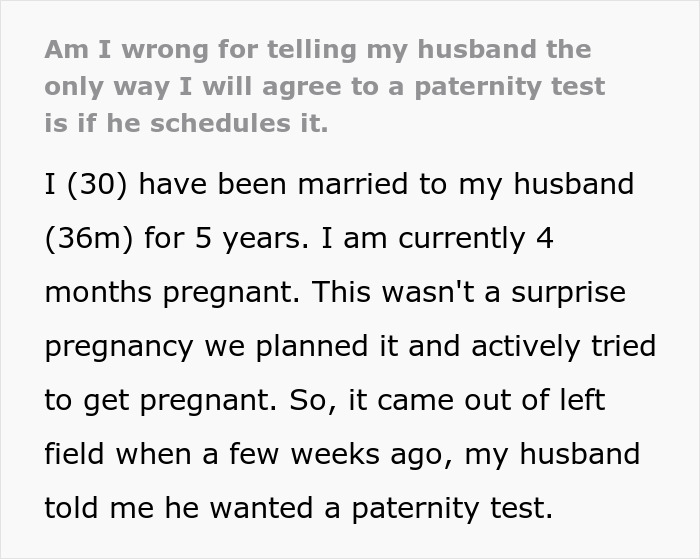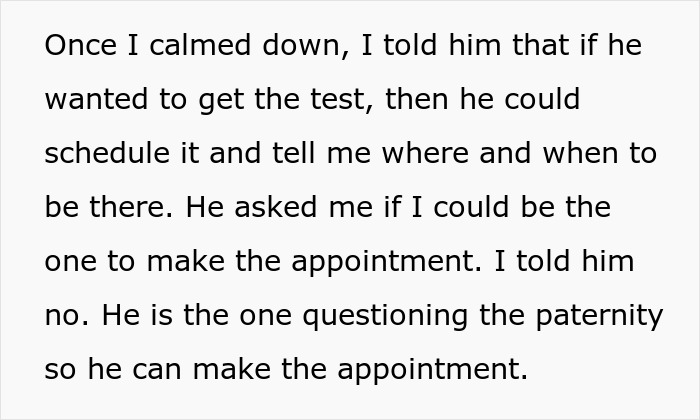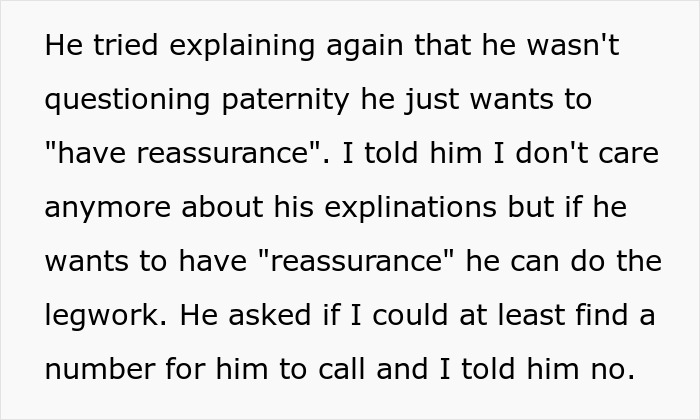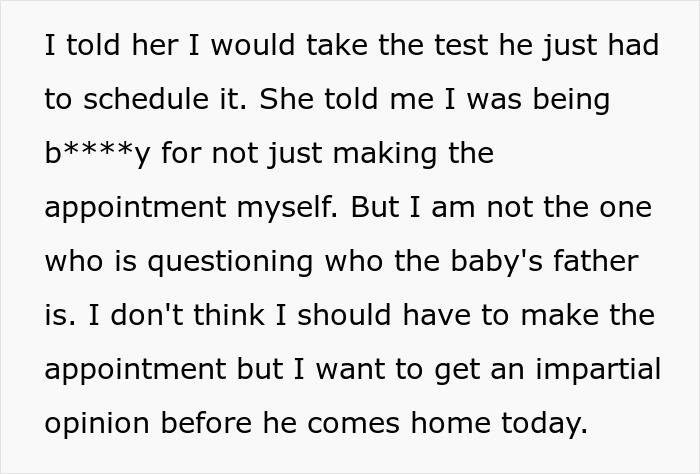Unfortunately, such a wholesome experience was soured for this couple when the husband asked for a paternity test 4 months into the pregnancy. The wife was very confused about his request, as he had no reason to believe she was unfaithful to him. He still insisted on it, and she finally agreed, but only if he scheduled it himself. Scroll down to read the full story and a conversation with marriage and family therapist, Dr. Jane Greer, who kindly agreed to tell us more about couples deciding to perform paternity tests.
There’s a lot of excitement involved in bringing a new life into the world
Share icon Image credits: demopicture / envato (not the actual photo)
But this husband soured the wholesome experience by asking for a paternity test
Share icon Image credits: nd3000 / envato (not the actual photo)
Image credits: anonymous
300,000 paternity tests are performed in the US annually
Approximately 300,000 paternity tests are performed in the US annually, and far more men than women prefer to do them when the baby is born. Bored Panda reached out to marriage and family therapist Dr. Jane Greer, who kindly agreed to tell us more about why couples decide to perform such a test. She told us that a father may insist on a paternity test for “reassurance” or “peace of mind” without suspicions of infidelity for several reasons. “It may be to protect his legal rights in case of future disputes or to strengthen the emotional bond with the child and provide a sense of security.” There are also health reasons, genetic heritage, and potential risks to consider. Additionally, the child who was separated from their father may want to restore the biological relationship in the future to alleviate any lingering doubts or concerns.
Paternity testing may have severe effects on mental health
The decision to perform a paternity test is never an easy one. It inevitably will be surrounded by questions, judgments, doubts, and anxieties. Dr. Greer proposes that making this choice can have negative effects on the mental health of both the parent and child. “It can affect the father’s sense of identity and role within the family, the couple’s relationship, and the children’s emotional well-being. If the test confirms the father’s paternity, it can provide a sense of security and stability for the child. However, if the test reveals that the father is not the biological father, it can be emotionally challenging and may lead to feelings of confusion or loss.” In such troubling times, Dr. Greer suggests that couples can support each other emotionally and psychologically, regardless of the outcome of the paternity test, by fostering open communication, empathy, and understanding. “It helps to focus on building and strengthening the emotional connection and trust between each other,” she adds. She further advises parents to respect each other’s boundaries and give each other some space if needed. Afterward, try to approach the situation as a team and work together to find solutions that foster support when going through such challenges. “The goal should be to protect the welfare of the child and offer a positive and supportive plan for the future together, regardless of the outcome of the test,” she concludes.
Commenters supported the wife and shamed the husband for not being able to schedule the appointment
Anyone can write on Bored Panda. Start writing! Follow Bored Panda on Google News! Follow us on Flipboard.com/@boredpanda!





















